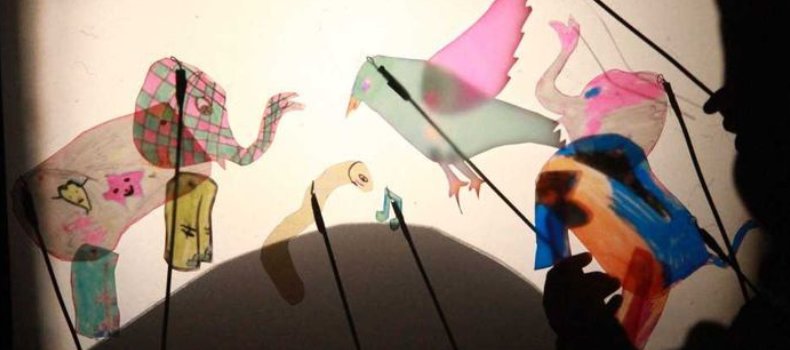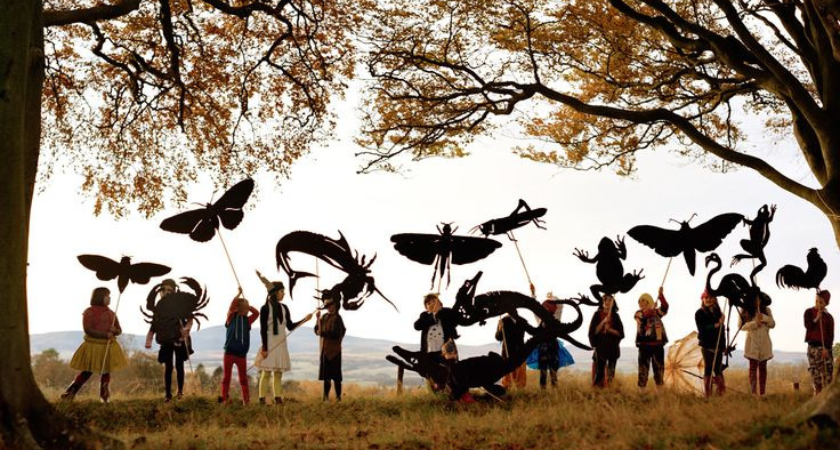Children’s Books As A Vessel For Personal Growth

International Children’s Book Day is celebrated every April 2. We talked to writer Alexandra Alpízar Escobar about the importance of reading at an early age.
I remember every time I accompanied my dad to Lehmann’s bookstore as a child. Seeing all those books with such striking covers, funny titles, even with different textures made me want to read them all.
When my dad would arrive with a new book for me, I would read it in a day and reread it a thousand times.
I also remember when they took us to the library in school and we could pick out any book and rent it for two weeks.
All these memories of my childhood are very precious to me. They make me think about how important reading, books, stories are for all children.
International Children’s Book Day
This day was born as an initiative of the International Board on Books for Young People (IBBY). Why April 2nd? It is due to the birth of Hans Christian Andersen, one of the most influential writers of children’s literature. Who does not know The Ugly Duckling, Thumbelina, The Little Mermaid or The Steadfast Tin Soldier?
The objective of this date is to awaken interest in books and reading for children and youth because literature helps to enhance imagination, empathy, language and creativity. It is important not to skip this stage. Never.
Children’s literature in Costa Rica
To touch on the subject of children’s literature in Costa Rica, we spoke with Alexandra Alpízar Escobar about the importance and challenges facing both writers and children in the country.
What does the celebration of International Children’s Book Day mean to you, as a Costa Rican writer of children’s stories?
It is significant to me that something as essential as a children’s book has its own day to celebrate. The work that has been done by numerous writers for children and teens should be as recognized as those who only write for adults. And I welcome the fact that this date exists.
How do you think children’s literature can positively influence the lives of Costa Rican children?

The habit of reading is a healthy form of entertainment that positively stimulates the child’s brain and way of thinking. It also promotes imagination and critical thinking. Letters and arts should have the same status as science; they are not at odds with each other like oil and water, we humans need these things in our daily lives.
Giving an age-appropriate book to children and adolescents is a huge favor to their recreation. They will have more courage to search and investigate whatever it is they are trying to learn and develop. If the child does not like this activity, well, perfect, but a relationship with reading will have remained, maybe he/she will not like literature, but scientific articles. Only advantages.
For all these reasons, I agree one hundred percent that reading should be promoted to this group of the population.
What is your favorite children’s book and why do you think it is still relevant to children today?
Personally, I don’t have a favorite children’s book as such. I really like the story collections, though.
I grew up with the compilations of European fairy tales collected by Jacob and Wilhelm Grimm, which remain relevant to this day. Thank God that my dad, whenever he could, read these bedtime stories to my sisters and me. It is something I recommend that households with children do, as the warm remembrance is helpful to the family relationship and the perception of reading.
Speaking specifically about these books, I think their popularity is not only because of nostalgia and the many movies made, but because such stories are beautiful and have particular teachings that permeate from childhood to adulthood. Besides, magic and amazing things are elements that we all like to a greater or lesser extent. I haven’t met a child who doesn’t like the idea of hearing a story where something fantastic happens. As I said in the previous question, the imagination is very well nourished by books.
What message or values do you try to convey through your children’s stories?
When I narrate another author’s story I try to make it one that promotes the importance of love, family and not giving up in the face of difficulties. The story of “The Seven Ravens” is one of my favorites for this reason, it has a charm that fills me with tenderness.
In the cases that are of my own invention, I intend to leave a message that I have rarely seen, such as the love and tolerance that can come from having a partner or family member with a disability. I also like to explore the fact that even if a character has a disability, it doesn’t mean that he or she can’t be the adventurous protagonist of a fantasy world and share in a group as equals.
Friendship and family love forged without blood ties are also topics that I love to include in my writing and that I wish more people would address. Children should know that even if they are hurt in their family, it doesn’t mean that they should become bitter and stop being kind, they should have an idea that it is possible that outside they can find good people who love and support them unconditionally.
How would you describe the role of illustrators in creating children’s books and what has been your experience working with them?
From my point of view, illustrators play a fundamental role in attracting children’s attention and guiding them in their reading. The youngest children need the support of a drawing to better understand what is happening in the narration; it also happens to children who for some reason get distracted and need extra support to concentrate.
Regarding my experience: It has been a challenge. I’m not only used to writing content with sensitive topics, but I’ve also gone through various drawing styles that I don’t think are very appealing to a child either. I’ve learned a lot in this science since I started doing these illustrations, and I’ve really enjoyed it. I have asked God to help me a lot in this area, for me doing something for children is a serious matter and there must be both self-preparation and respect for them.
What challenges do you face as a children’s book writer in Costa Rica and how do you overcome them?
Certainly there is little support if one is not already famous, or if there is no money to pay for editing and copies, that is, traditional publishing is not very accessible. It is difficult to find publishers and contests focused on children’s literature. Besides, as in the cinema, mediocrity is justified with “it’s for children and that’s why we shouldn’t ask so much of it”. Of course “so much” should be asked of it! Children are not stupid, and they deserve quality and effort.
I think Costa Rica lacks a lot in terms of literature in general. Innovating in themes and ways of writing is something that many people in high positions have a hard time accepting. I say this because colleagues have had to self-publish after many rejections, or had to pay to get copies and thus distribute their works. I have had writing rejected not because I write badly, but because perhaps it should be a saga like those in fashion instead of a long book, or because the subject matter is inappropriate; someone tell me if talking about the mental health of a protagonist is inappropriate in a mental health magazine, even if it had zombies included.
International Children’s Book Day
Okay, the zombie thing wasn’t for kids, but the theme is the same. There are a lot of roadblocks. I don’t want to write “Los cuentos de mi tía Panchita” 2.0, but I have noticed that some distributors want that from writers, without saying it openly, of course. There is a lot of talk that children should read more, but little motivation to write for children. I see more such requests at the level of live entertainment such as theater shows and oral storytelling/storytelling, not so much reading per se. By the way, in this area I recommend the “Festival Puro Cuento”, it is a great project for the culture and art of children and family stories.
I try not to get discouraged, so I remain positive that my grain of sand can be of some use. It’s time to develop patience and find ways to keep moving forward. The children are worth the effort.
What is your opinion on access to reading for children in Costa Rica and what actions do you think could be taken to promote it even more?

I think it is more scarce than for other age groups. At least, that’s what I’ve noticed. They are not promoted the same way. I haven’t seen beautiful, super flashy posters advertising that they sell collections of classic stories or any new children’s books. This is usually terse, not unlike the prices, which I’ve also noticed that you don’t always find as many promotions for children’s books or the catalogs are somewhat reduced. It is like a more specific niche, where you have to look a little harder and where you have to consider proposals from other countries.
There are no recommendation tables for children’s books, there are no specialized book fairs that make enough noise. Only book fairs can include people knowledgeable in this area. I am speaking from my own experience, and I hope someone will come to tell me that I am wrong about this.
Something similar happens with literature for teenagers/young adults, it is enough that they have a cartoon cover to classify sexual content for adults as if it were suitable for those ages. I have seen that this kind of books are sold to children of twelve or fourteen years old, parents are not even aware of it and bookstores do not give it the slightest importance. In the end, they are not so careful to give them quality content (or the quality content is clouded by what is fashionable among adults).
International Children’s Book Day
Another obstacle I’ve noticed is that schools and colleges don’t always get it right with the books chosen or even the method. If you see that kids are fascinated with mythology and action movies, why not have them read classic comedies (“Oedipus Rex” is beautiful, but not for everyone) or some modern book and then explain the context in depth? I really don’t understand the fear of innovating with curricula.
I got a report card and a severe scolding when I was a child because I forgot to bring the book I was supposed to read. The teacher didn’t lend me a book or ask someone to share with me, it was just one more duty I had failed at, not a nice activity I should enjoy. In other situations, I had other teachers who encouraged class plays and making posters with drawings. There’s a little bit of everything, I’m glad there are the latter.
I can’t do anything against teachers who ruin the reading habit for their students, of course. What I can do is that I can tell the children I volunteer with a story with illusion and I can recommend them to read nice things, tell the parents what they can give to their children so that they can entertain themselves in a healthy way. I can support those who talk about this topic and come to comment on it in this type of spaces, someone must get the message.
International Children’s Book Day
Encouraging reading and supporting projects for such purposes are simple things that can be done. Personally, I love the campaign “Compartí tus libros leídos” and other similar campaigns that have been done (I can’t remember the name, sorry), because they motivate people to take an interest so that low-income children can have books within their reach. I think that if everyone does something about it, even if it is small, we can make great progress.
Mónica Gallardo in collaboration with Alexandra Alpízar Escobar, Costa Rican writer and classical philologist with a great fascination for literature and the arts who seeks to share her stories to make people laugh, cry and imagine.
Twitter/X: @alex_vae
Instagram: @alex_vae_
Blog: https://consejosdeunabetareader.blogspot.com/
Navigate articles





